Do you ever encounter something about essential oils and pass it off as some new fad going around? Essentials oils are definitely not something new, in fact, they were mentioned in the Bible as well as their sources. In Bible times, essential oils were used as fragrances, odors, ointments, aromas, perfumes, and sweet savors which are many of the uses that we use them for today.
I hope you enjoy this presentation on how essential oils were used during Bible times!
Note: Tap or click each image to enlarge/shrink.
Oils of Ancient Scripture
There are many essential oils in the Bible that are sold by Young Living. These include Aloes, Cassia, Cedarwood, Cypress, Frankincense, Hyssop, Myrhh, Myrtle, Onycha, and Rose of Sharon.
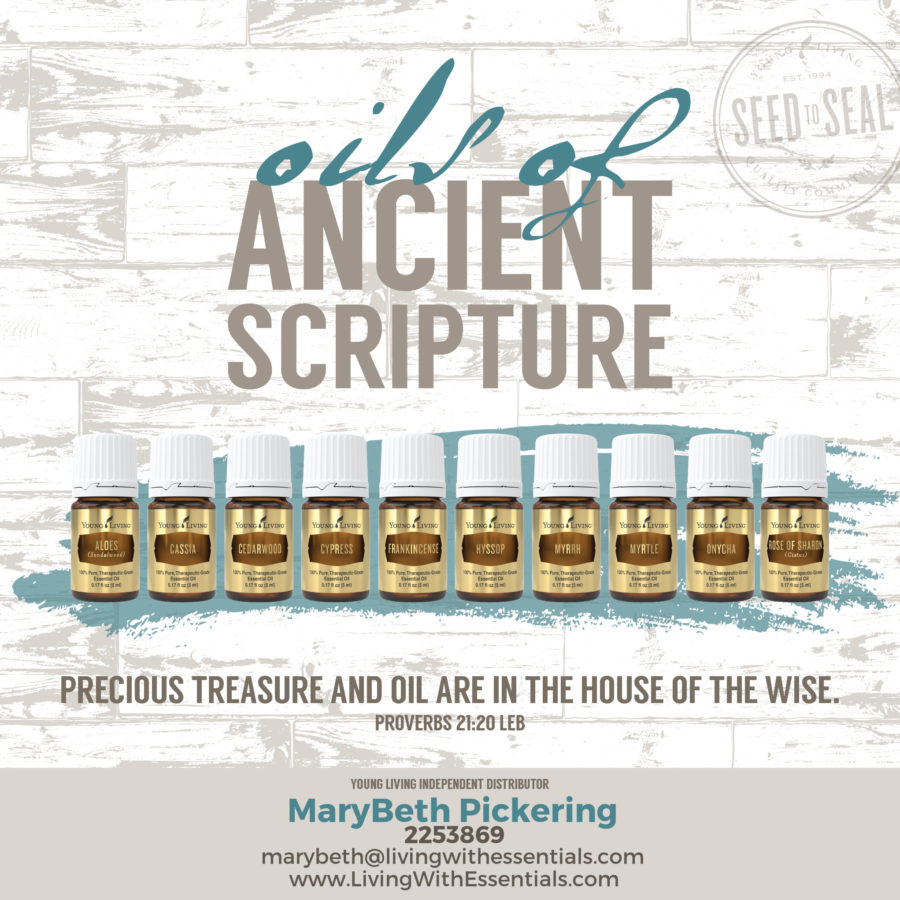
What Are Essential Oils?
Love the way the fragrance from a fresh orange peel brightens your day? Each essential oil’s complex, pleasant, and unique scent triggers emotions and memories, which can help in your search for a more fulfilling and balanced life.
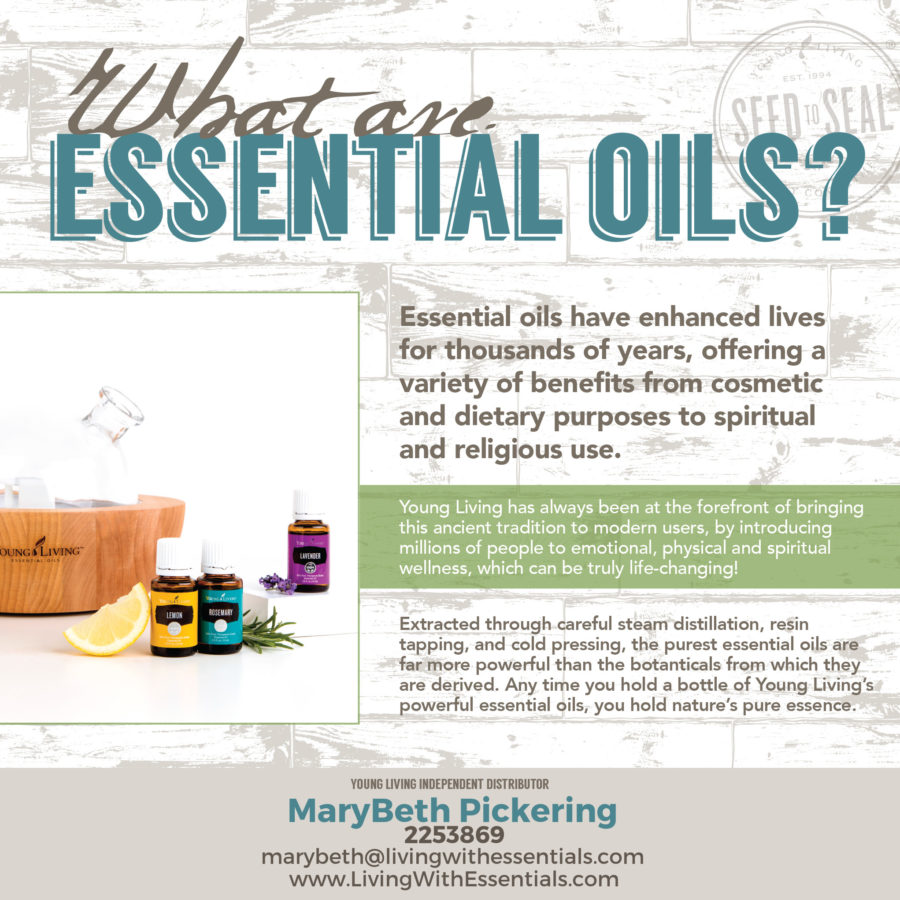
How to Use Essential Oils
To help you rediscover peace, balance, and joy, use essential oils and blends for diffusion, soothing baths, massage, inhalation, or topical application.
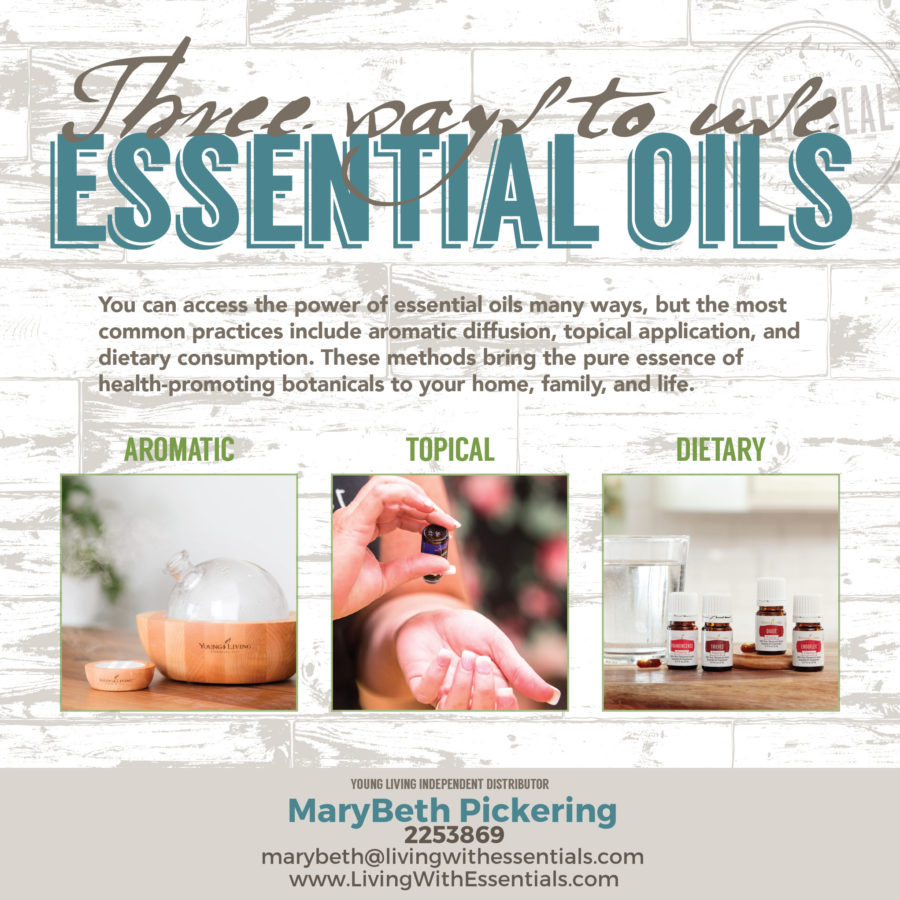
Essential Oils in the Bible
There are over 600 references to essential oils or aromatic oil-producing plants mentioned in the Bible. Among the essential oils or aromatic oil-producing plants mentioned in the Bible are myrrh, frankincense, cedarwood, cassia, onycha, hyssop, myrtle, aloes, cypress, and rose of sharon.

Aloes (Royal Hawaiian Sandalwood) Essential Oil
Believed to be made from fragrant Sandalwood, Aloes were a gift Nicodemus brought to Jesus.
Additional Uses: Apply 2–4 drops directly to desired area. Dilution not required, except for the most sensitive skin. Use as needed. Diffuse up to 1 hour 3 times daily.
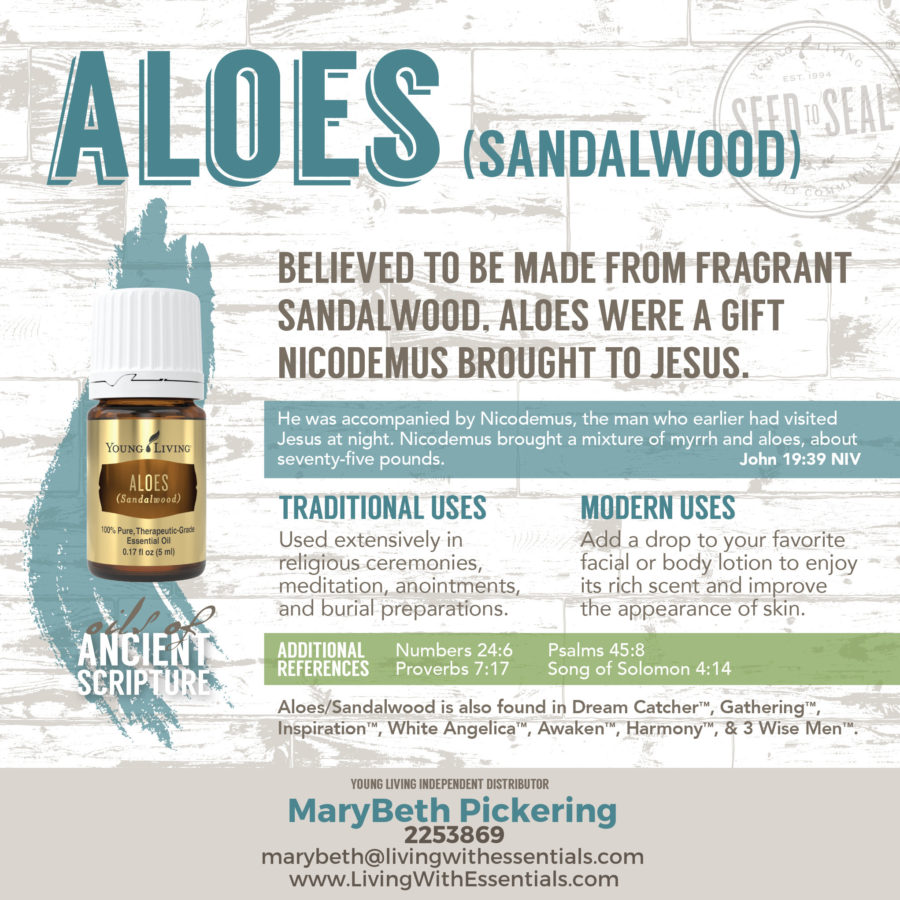
Cassia Essential Oil
Cassia was a key ingredient in the incense used in temple worship.
Additional Uses: Dilute 1 drop with 4 drops of V-6™ or olive oil. Test on small area of skin on the underside of arm. Then apply to desired area as needed.

Cedarwood Essential Oil
The “Cedars of Lebanon” were acclaimed for their durability and used to build Solomon’s temple.
Additional Uses: Apply 2–4 drops directly to desired area. Dilution not required, except for the most sensitive skin. Use as needed. Diffuse up to 1 hour 3 times daily.
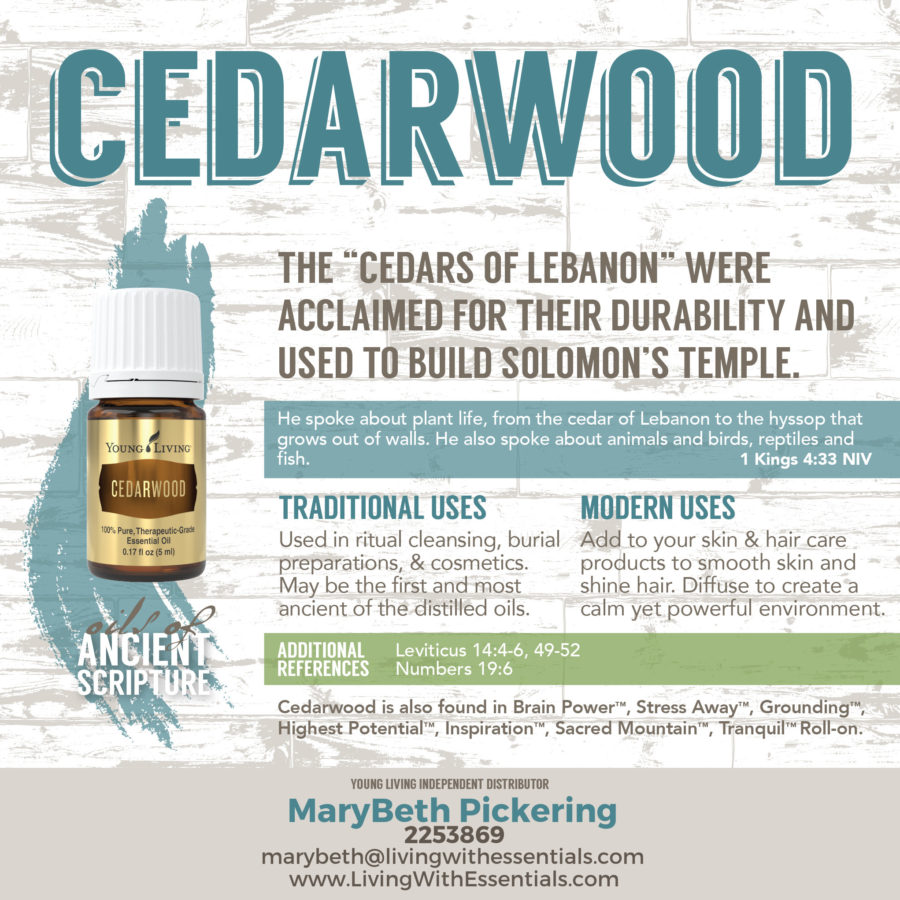
Cypress Essential Oil
Cypress wood is so durable that the Cypress doors of St Peter’s basilica show no sign of decay even after 1,200 years.
Additional Uses: Apply 2–4 drops directly to desired area. Dilution not required, except for the most sensitive skin. Use as needed. Diffuse up to 1 hour 3 times daily.
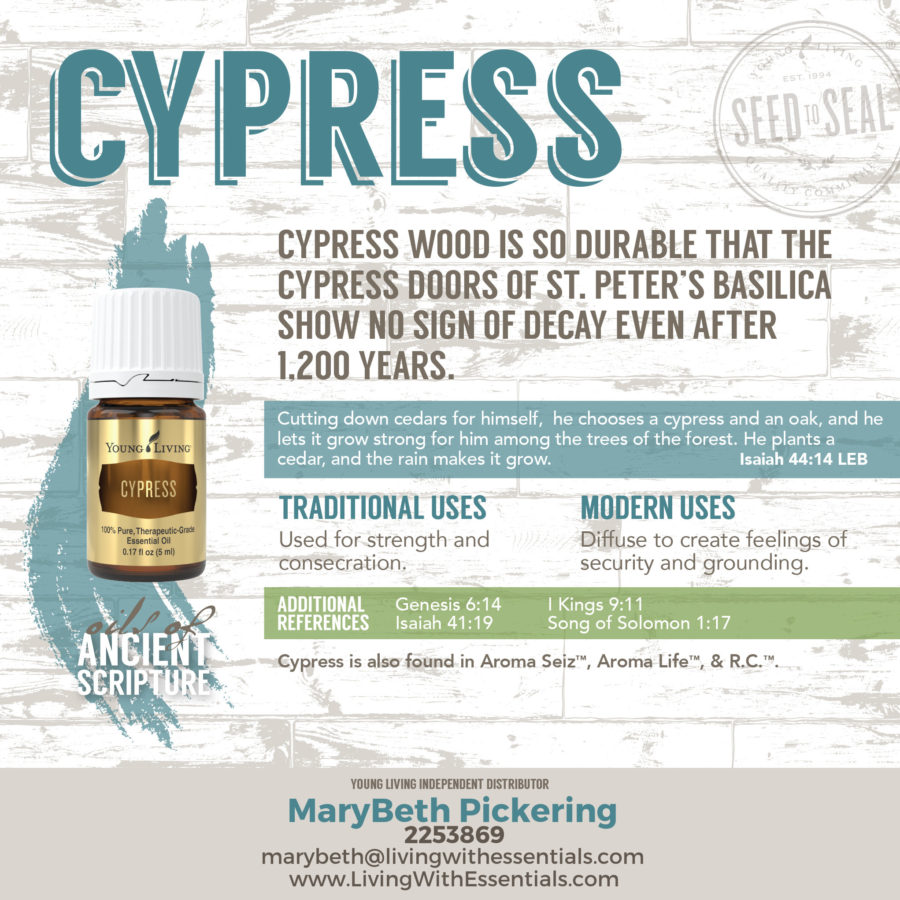
Frankincense Essential Oil
Frankincense is one of the many common essential oils used in the Bible. The Hebrew word for Frankincense, levonah, is used in the Bible 22 times. This makes it one of the most recognized materials in Scripture.
Additional Uses: Apply 2–4 drops directly to desired area. Dilution not required, except for the most sensitive skin. Use as needed. Diffuse up to 1 hour 3 times daily.
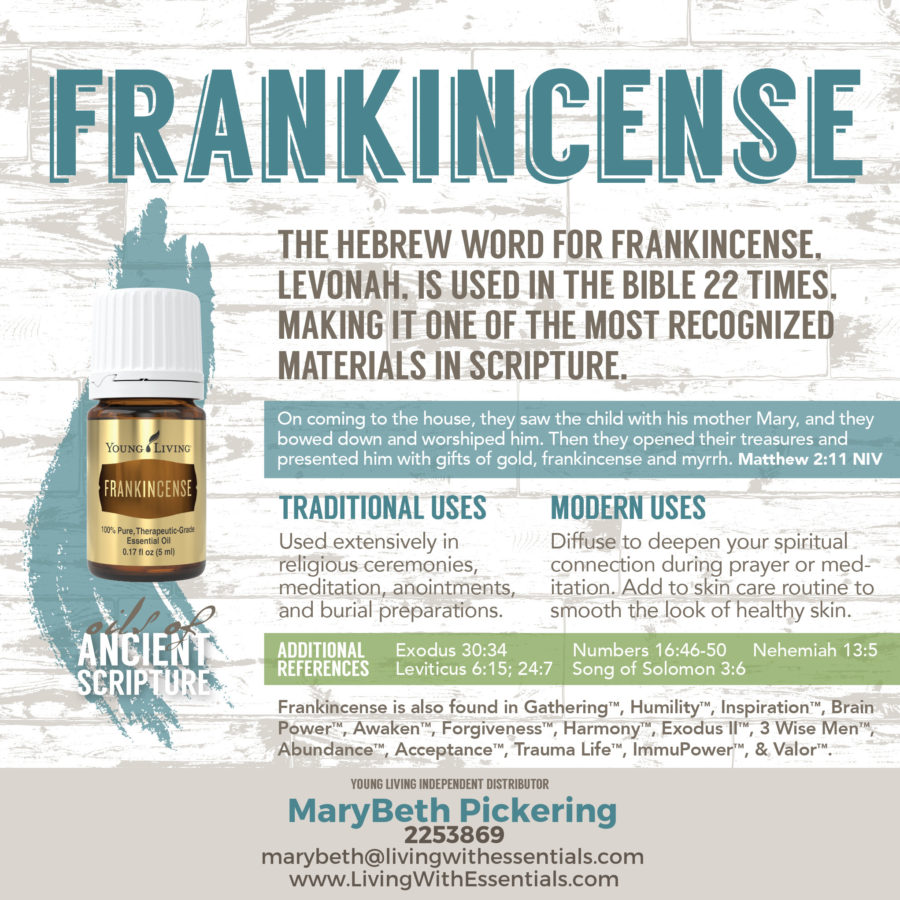
Hyssop Essential Oil
Biblical references indicate it was likely used in practices and rituals intended to purify and cleanse.
Additional Uses: Dilute 1 drop with 1 drop of V-6™ or olive oil and apply topically to desired area as needed. Diffuse up to 10 minutes 3 times daily.
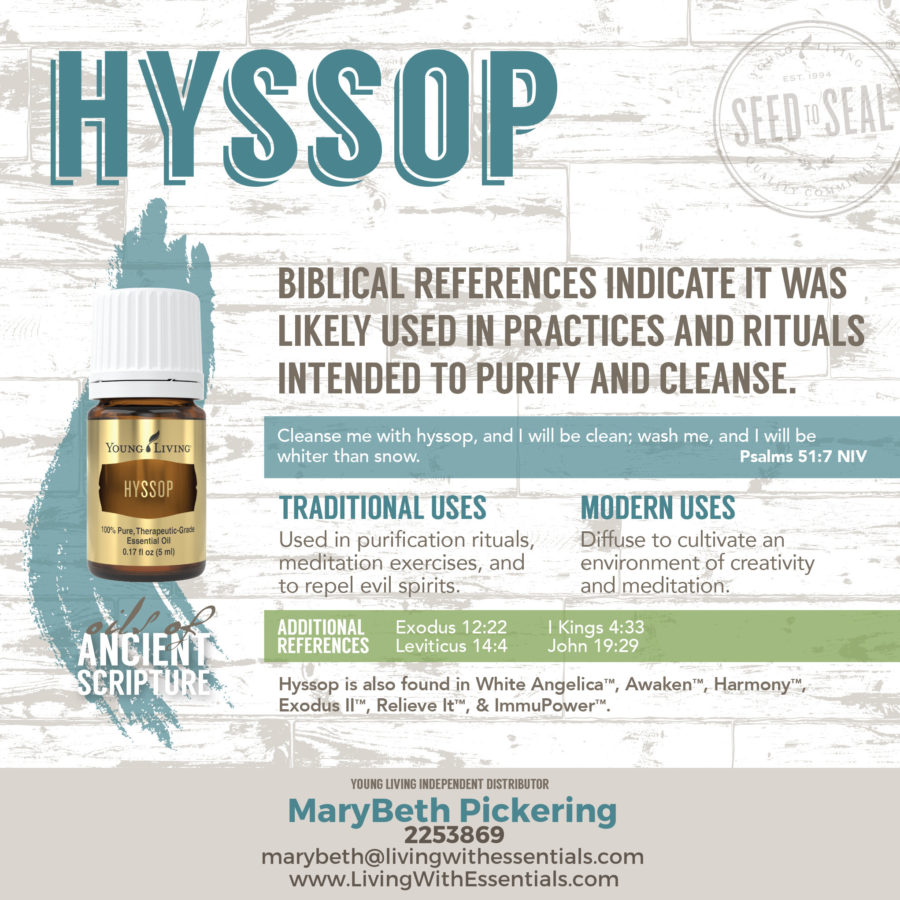
Myrrh Essential Oil
One of the key ingredients in Moses’ holy annointing oil, Myrrh was highly regarded by Biblical figures such as David and Solomon.
Additional Uses: Apply 2–4 drops directly to desired area. Dilution not required, except for the most sensitive skin. Use as needed. Diffuse up to 1 hour 3 times daily.

Myrtle Essential Oil
Sukkot, commonly translated as “Feast of Tabernacles”, includes Myrtle branches in its ceremony.
Additional Uses: Dilute 1 drop with 1 drop of V-6™ or olive oil. Then apply topically to desired area as needed. Diffuse up to 30 minutes 3 times daily.
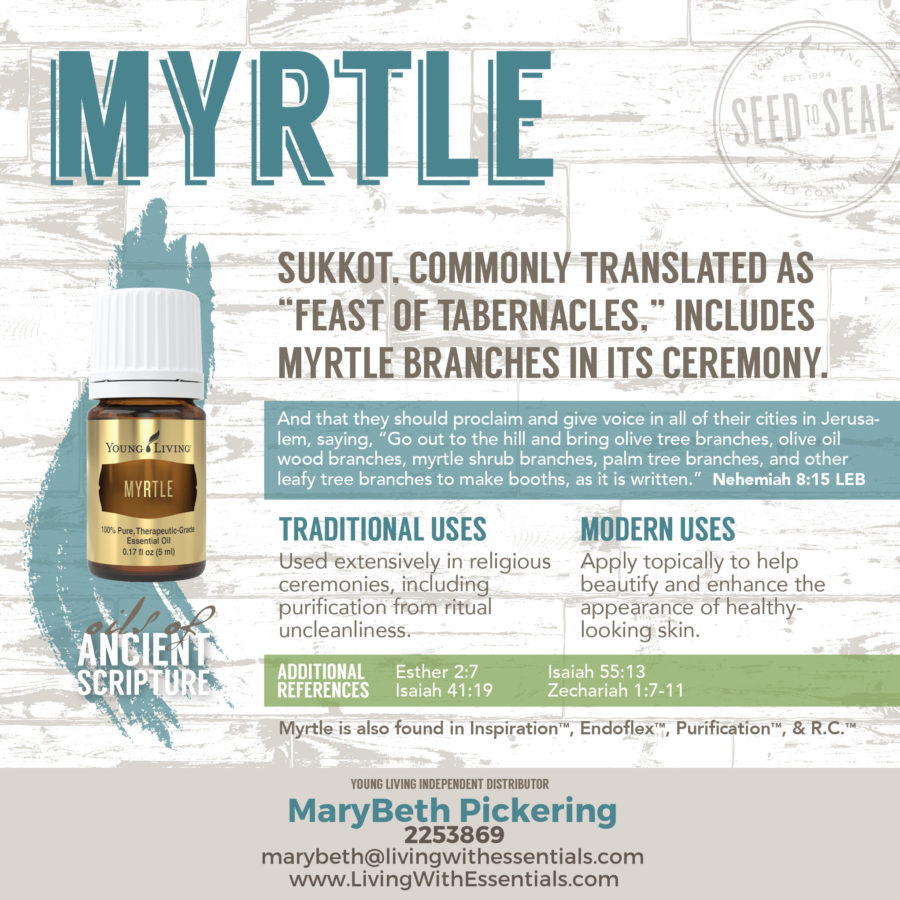
Onycha Essential Oil
Onycha was an ingredient in the “Pure and Holy” perfume or incense the Lord commanded Moses to make.
Additional Uses: Apply 2–4 drops directly to desired area. Dilution not required, except for the most sensitive skin. Use as needed. Diffuse up to 30 minutes 3 times daily.

Rose of Sharon (Cistus) Essential Oil
This rock has a sweet, honey-like scent and may be the flower referred to as The Rose of Sharon.
Additional Uses: Apply 2–4 drops directly to desired area. Dilution not required, except for the most sensitive skin. Use as needed. Diffuse up to 1 hour 3 times daily.

Oils of Ancient Scripture Set
Out of at least 33 different essential oils, Aloes, Cassia, Cedarwood, Cypress, Frankincense, Hyssop, Myrrh, Myrtle, Onycha, and Rose of Sharon Essential Oils make up the 10 essential oils of the Oils of Ancient Scriptures set.

How to Order
Check out How to Order Essential Oils to learn more about how to order and other membership kit options. If you are already a member, you can visit the Young Living Virtual Office, login, and order the items you would like.

Healing Oils of the Bible
Get your copy of Healing oils of the Bible to go along with your Oils of Ancient Scripture.
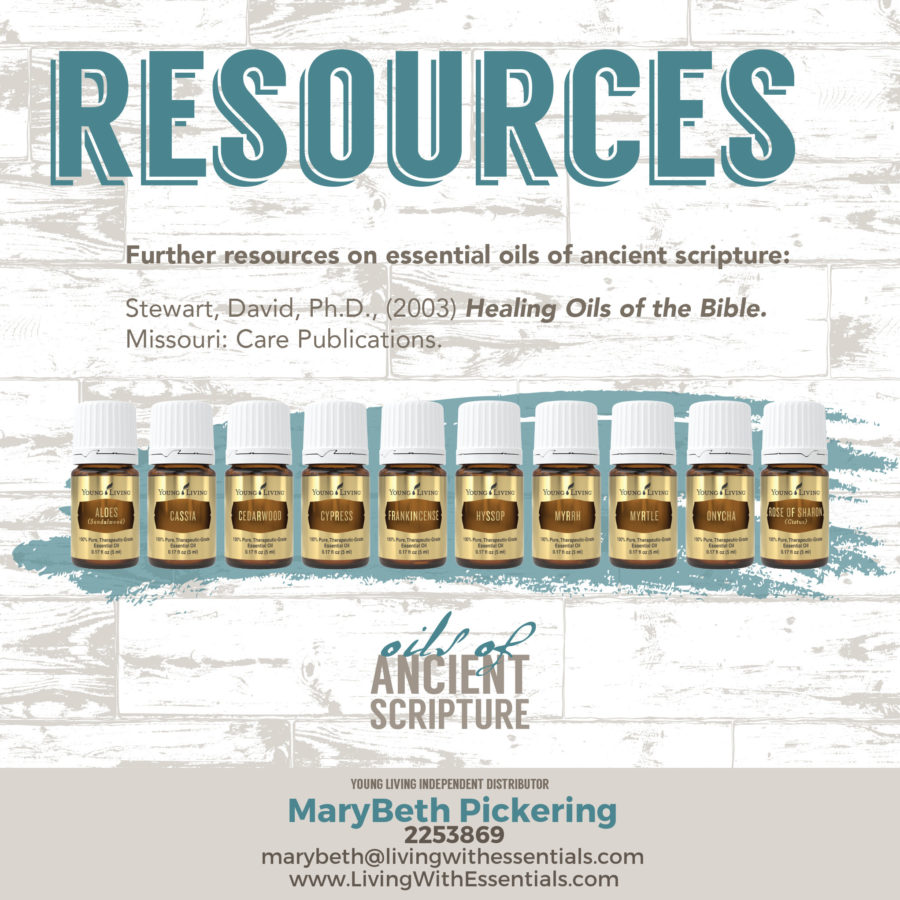
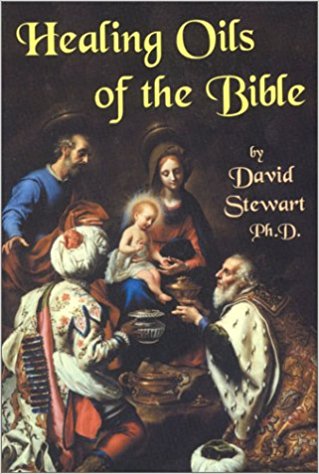
I hate SPAM and will protect your privacy. You can easily unsubscribe at any time!

